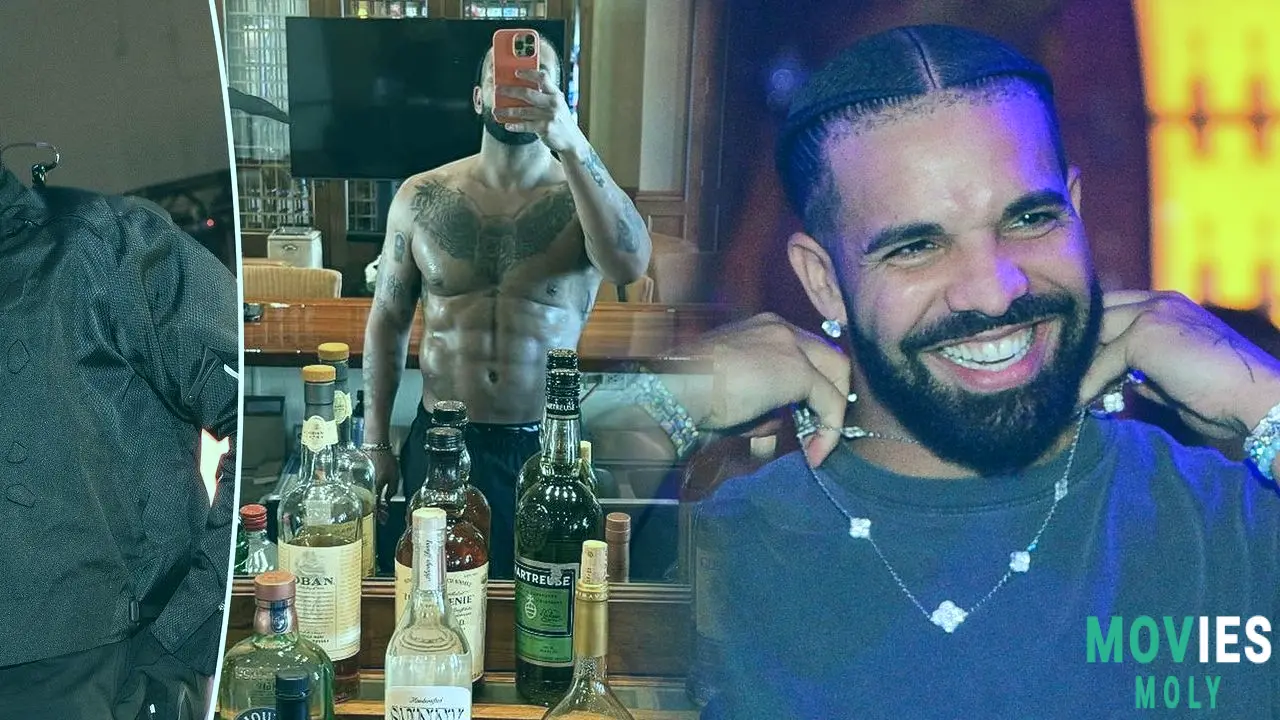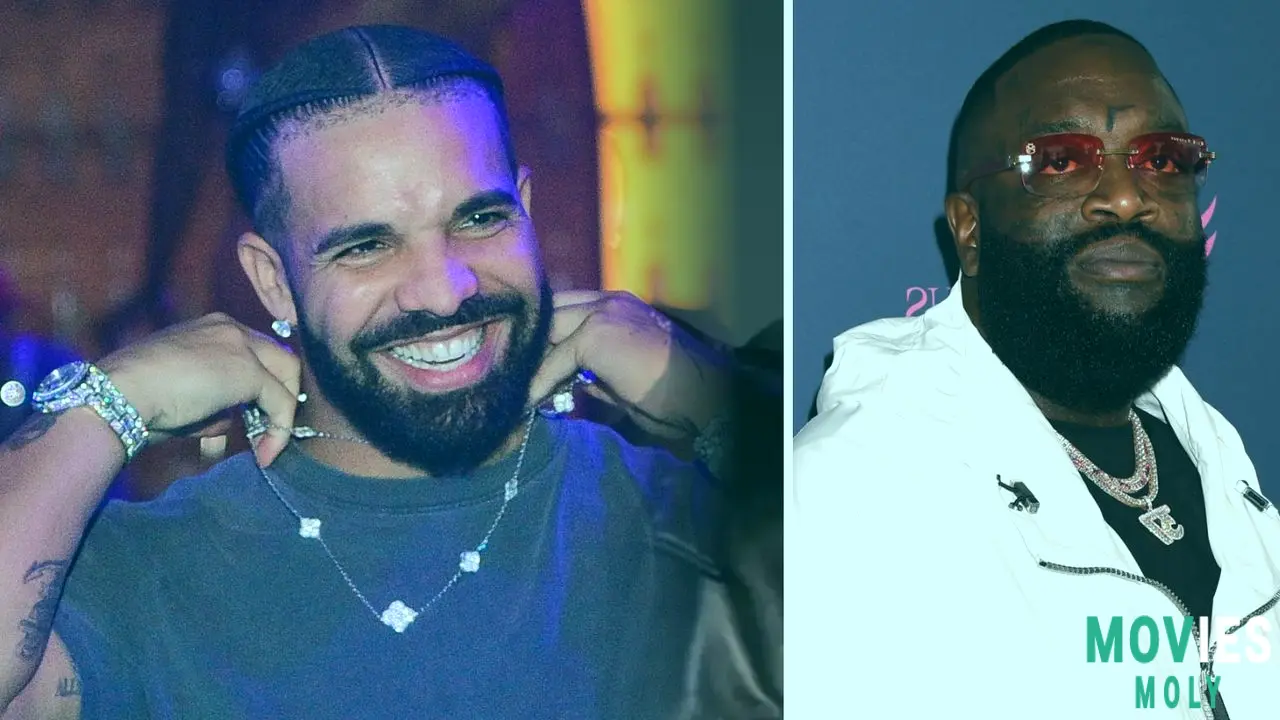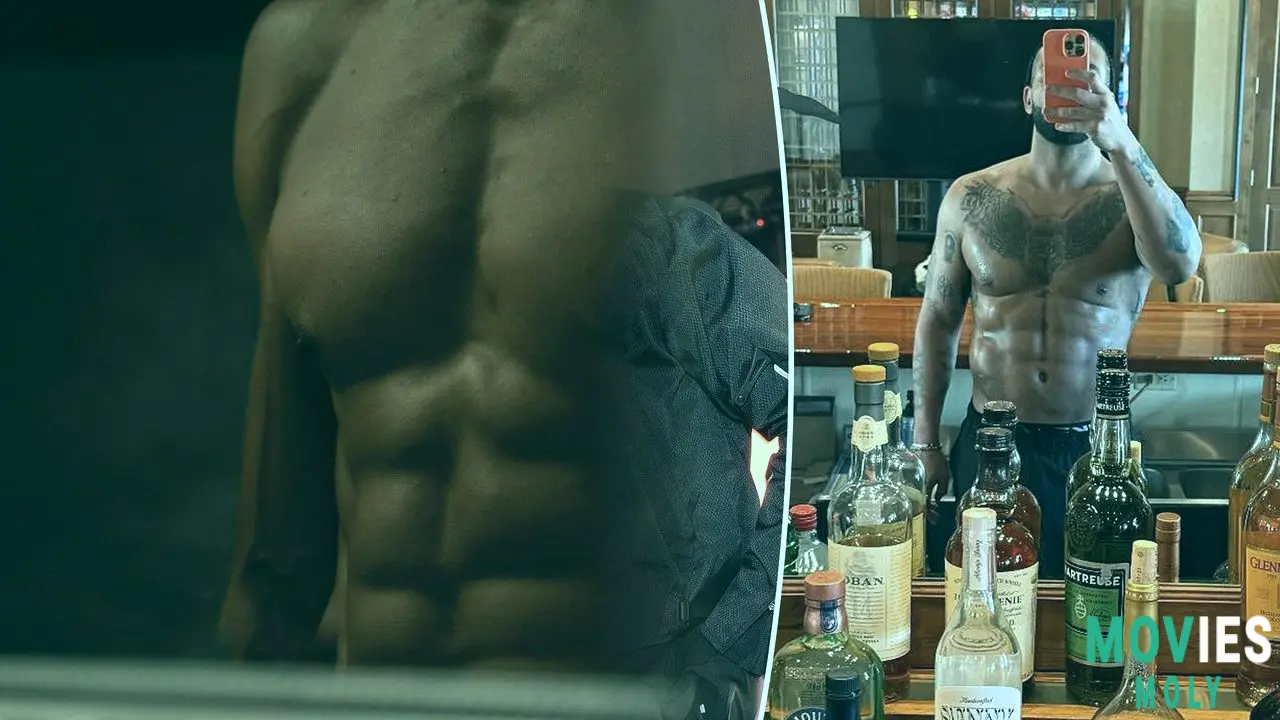Let's be honest: Drake knew precisely what he was doing when he tweeted that now-infamous naked image, displaying implausibly sculpted Abs while nursing a glass behind a stocked bar. The tagline "I'm wide awake for the nights that separate the type who get to it til they get it right from the type who just …type" may have been a red flag to the internet bull. But even I was taken aback by the wave of derision that transformed "Temu Abs" into the most heinous meme of 2025. What began as another humblebrag post became a global critique of celebrity authenticity when Rick Ross compared those washboard lines to "dinner rolls," sparking a tempest that overshadowed the artwork he was supposed to promote.
Fitness fans and plastic surgery experts came out swinging, pointing out the stark contrast between Drake's etched waist and his comparatively undefined arms and chest - a physical impossibility achieved via natural training. Plastic surgery influencer Dana Omari identified the telltale signs: "That's not six-pack definition - that's 8K ultra HD surgical precision," indicating abdominal etching, an increasingly popular operation among wealthy men seeking fast pleasure. The sheer ridiculousness of the picture - those hyper-defined squares placed on a frame with no proportional muscle growth - produced the ideal storm for online detectives.
The Internet's surgical strike against celebrity vanityHow Drake Became "BBL Drizzy" Again
This is hardly Drake's first cosmetic rodeo; rather, it is his most visually perplexing. Joe Budden's 2016 track Afraid mocked Drake for having "his stomach sculpted," while Pusha T's 2018 diss track Surgical Summer cemented the rumor. Rick Ross crowned him "BBL Drizzy" on 2024's Champagne Moments, mocking: "That's why you had an operation to make your nose smaller than your father's nose". However, unlike earlier charges, the visual evidence shown here is indisputable. The merciless Temu comparisons ("Ordered abs from temu n forgot to add shoulders n [triceps]") and Photoshop collages placing dinner rolls over his midsection ring true because they highlight the fundamental absurdity: in an era where authenticity is currency, Drake's alleged shortcuts feel like a betrayal to fans who expect their idols to... well, earn it.
Even Kara, a 29-year-old fitness trainer I met with, couldn't hide her surprise: "Abdominal etching only works on bodies that already have low body fat." His arms communicate the actual story; you can't naturally reduce definition in that way." This biological impossibility turned the roast into a vote on integrity. Social media erupted with composite photographs comparing his abs against his relatively soft shoulders - one tweet cleverly joked "Arms and chest sold separately" - reinforcing the disparity as the never-ending comedy. When your own industry peers pull you down like this (Ross putting Drake beside bread-stuffed clothes was more than just amusing; it was purposeful savagery), you've crossed the line from gossip to full-fledged cultural reckoning.
Anatomy of a Roast: Why This Hit Differs

Hunger: The Perfect Storm of Abs, Algorithms, and Authenticity
What amazes me is not the ridicule itself (celebrities are mocked all the time), but the visceral, broad joy with which individuals destroyed Drake's physique. Unlike his enticing "Wait till you see my..." crotch-arrow shirt earlier this year (which got only eye rolls), the abs triggered something deeper: our collective exhaustion with manufactured perfection. In an era of FaceTune and fillers, his "mismatched muscles" have become a symbol of influencers attempting to cheat their way to popularity. We will accept vanity, but only if you put in the hard work. As one viral tweet put it, "Kendrick wrote rhymes in a basement for years." Drake ordered abs from Colombia. We know who actually 'went to it till they got it right.'"
The time emphasized everything. Dropping this during his furious battle with Kendrick Lamar, whose line "Let your core audience stomach that, then tell 'em where you get your abs from" now reads like a premonition, framed it as hip-hop's ultimate hypocrisy. Meanwhile, new Diddy charges have resurfaced old party photographs, making Drake's desire for validation appear desperate. When that selfie appeared on feeds, it was not simply the abs that were being judged, but also the credibility. Memes with Diddy's shadow over the image ("He's oiled up and ready for that Diddy party") linked the vanity to hip-hop's ongoing crisis of character. Suddenly, "BBL Drizzy" was more than simply an insult; it was a catchphrase for an entire industry's theatrical excess.
Beyond the Six-Pack: What Drake's Abs Reveal about Celebrity Culture

Surgical Summer is Never Really Over.
To be clear, I don't care if Drake went under the knife. Celebrities constantly change their appearances. But the frenzy reveals hip-hop's complex relationship with image creation. We celebrate transformation stories (for example, 50 Cent's famed weight loss), but what about cosmetic enhancements? That's more challenging territory. When Ross mocks contouring with bread rolls or fans make jokes about "ab implants," they are really asking: In a genre predicated on "keeping it real," can you commodify authenticity and offer us medically improved abs? The answer resonating through memes appears to be a resounding nay.
The most incriminating proof is Drake's silence. His vague 2019 response to DJ Carnage's surgery taunt ("Is this because you are angry about... that one person the other day...?") sounds sloppy in comparison to today's photographic proof. With every fitness influencer scrutinizing vascular differences and plastic surgery forums analysing his "sharp adipose transitions," avoidance turns into admittance. Finally, beyond the dinner roll memes and Ross' gleeful taunting, this affair illustrates one stark truth: In today's hypervisual culture, your body reveals stories that words cannot control.
Drake may have desired flex-worthy abs, but he delivered something far more compelling: a lesson on how vanity backfires when separated from authenticity. Those precisely etched squares didn't just ruin the internet; they wrecked the illusion. And witnessing hip-hop expose its own contradictions? That is the true spectacle.



